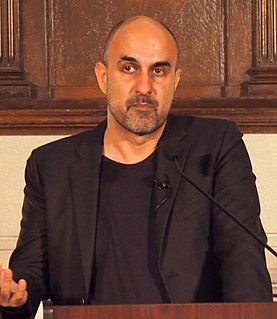A Quote by Milan Kundera
Suspending moral judgment is not the immorality of the novel; it is its morality.
Quote Topics
Related Quotes
Suspending moral judgment is not the immorality of the novel; it is its morality. The morality that stands against the ineradicable human habit of judging instantly, ceaselessly, and everyone; of judging before, and in the absence of, understanding. From the viewpoint of the novel's wisdom, that fervid readiness to judge is the most detestable stupidity, the most pernicious evil.
For, according to the teachings of Islam, moral knowledge automatically forces moral responsibility upon man. A mere Platonic discernment between Right and Wrong, without the urge to promote Right and to destroy Wrong, is a gross immorality in itself, for morality lives and dies with the human endeavour to establish its victory upon earth.
I'm not saying that atheists can't act morally or have moral knowledge. But when I ascribe virtue to an atheist, it's as a theist who sees the atheist as conforming to objective moral values. The atheist, by contrast, has no such basis for morality. And yet all moral judgments require a basis for morality, some standard of right and wrong.
Real morality is not the product of fearing a spanking. But what does fundamentalist hell-belief encourage? It retards any developing moral judgment by freezing moral maturity right at the most primitive, most childish, stage: the fear of retribution-and fundamentalism threatens one hell of a spanking.
In every age immorality has found no less support in religion than morality has. If the achievements of religion in respect to man's happiness, susceptibility to culture and moral control are no better than this, the question cannot but arise whether we are not overrating its necessity for mankind, and whether we do wisely in basing our cultural demands upon it.



































